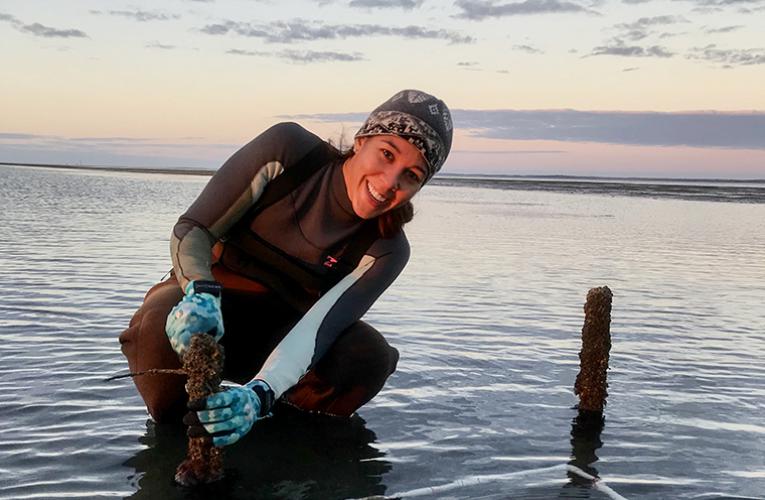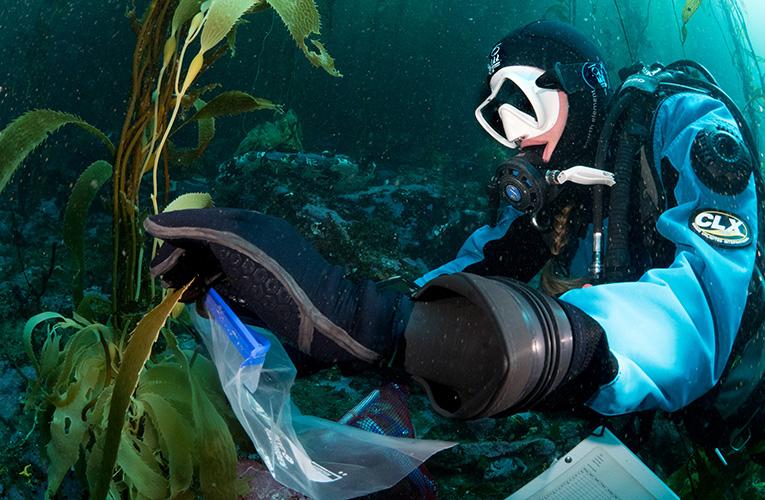Tim Lucas
(919) 613-8084
tdlucas@duke.edu
The Silliman Lab, led by Rachel Carson Professor of Marine Conservation Biology Brian Silliman, uses observations of natural communities throughout the world as primary inspiration for study questions. Research efforts broadly focus on community ecology of salt marshes and rocky shores, conservation of coastal wetlands and reef fish populations, physical-forcing and disease-mediated control of food web dynamics, plant-animal interactions and evolution of fungal farming behavior.
Alyssa Adler, a PhD student in Marine Science and Conservation, recently shared insights into the Silliman Lab, its research focus, her experience in the lab and the opportunities the lab offers Duke students.
What is the lab's research focus and what big questions is it trying to answer?
“The Silliman Lab is comprised of community ecologists focused on nearshore systems. Members of the Silliman Lab span several focal ecosystems, but we are alike in our propensity for big-picture thinking and affinity for experimental field studies. We are asking big questions in foundational ecology across ecosystems and providing data that may assist policymakers in protecting developed shorelines from increasing perturbations. Together we are examining the effect of sedimentary nutrient concentration on North Carolina seagrass systems (Stephanie Valdez), investigating mechanisms between top-down control and plant defenses in kelp forest systems (Alyssa Adler) and exploring possible facilitation effects between coral and sea urchins in the mid-Atlantic (Josette McLean). We aim to better understand major stressors in our focal systems and how we can better conserve important foundation species and the subsequent habitat they provide for marine communities.”
What has been your favorite or most rewarding experience in the lab so far?
“My work focuses on kelp forest systems in California and the South Atlantic Ocean. The second chapter of my dissertation is partially based in the Falkland Islands, a small temperate archipelago about 400 miles from southern Argentina. I had dreamed of conducting research on these islands for years before entering a PhD program, but my proposed research included both underwater surveys and lab-based research. This effort was logistically challenging, and a highlight of my career so far has been to make it to the Falklands this past January to complete what I had proposed in my preliminary dissertation plan.”
What opportunities does your lab offer students and how does that experience contribute to their academic and career growth?
“Dr. Silliman is a supportive and encouraging advisor, he consistently allows his students to go as far as they can in their direction of interest. We have students conducting research both on the West Coast and internationally, including Leo Gaskins, Anjali Boyd and myself. Incredibly, all Silliman Lab members are National Science Foundation (NSF) Graduate Research Fellowship Program fellows, and Brian supports us in chasing supplemental professional development opportunities, including the NSF-INTERN grant. This additional funding allows students to work with a non-academic organization to conduct research, an opportunity many lab members have already secured. We are collaborative team players and enjoy working through ecological concepts together. I think this management style allows each of us to explore and develop into unique scientists with a shared ethos around productivity and self-sufficiency.”
Each month the Nicholas School will highlight the work of one of its labs through the lens of a lab member. For more information on Duke Environment research visit our research page and to keep up with the latest news, subscribe to our monthly Research + Impact email newsletter.





